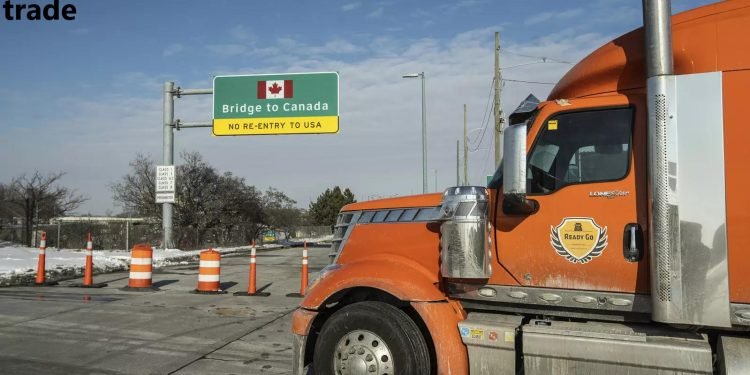Following the temporary closure of the busiest border crossing between the United States and Canada by trucks protesting COVID-19 restrictions on Tuesday, Canadian MPs expressed concern about the impact of disruptive rallies.
The protests have also created a significant ideological split among Canadians. According to one poll, many Canadians are anxious that political unrest in the United States would spill over into their own country.
According to Public Safety Minister Marco Mendicino, who called the Ambassador Bridge between Detroit and Windsor, Ontario, “one of the most essential border crossings in the world,” the blockage kept some US-bound traffic moving. It carries 25% of all cross-border trade between Canada and the US. According to Canadian Transport Minister Omar Alghabra, such blockades will seriously affect the economy and supply lines.”This is a real cause for concern,” he said in Canada’s capital, Ottawa.
The vast majority of Canadians are aware of the difference between being exhausted and sleepy due to the virus and flying to another planet. In a late-Monday emergency meeting in Parliament, Prime Minister Justin Trudeau stated that the protesters are attempting to obstruct our economy, our democracy.”
Despite the bridge closures, auto parts and other products continued to flow past the border on Tuesday evening. Trucks, on the other hand, were forced to go approximately 70 miles north to reach the Blue Water Bridge, which connects Sarnia, Ontario, with Port Huron, Michigan.
According to officials, trucks crossing that bridge had a roughly three-hour wait.
The journey will take more than five hours longer than usual. According to Flavio Volpe, president of the Canadian Auto Parts Manufacturers Association, demonstrators have no right to park cars in the middle of highways. Because trucker organizations and large logistics companies have opposed the blockades, he wondered how many of the demonstrators were truckers. He called it “a bunch of anti-government troublemakers.”
According to Volpe, the protests also endanger fresh crops, animals, and other food supplies. According to Jeff Schuster, head of the LMC Automotive consultancy firm in Troy, Michigan, because manufacturers are running low on item supplies and the supply chain is fragile, even a five-hour interruption can cause production delays.
He says, “Everything is so ‘just-in-time’ these days. This is just another huge obstacle in the industry.” In Coutts, Alberta, protesters also shut down another major US-Canada border crossing.
